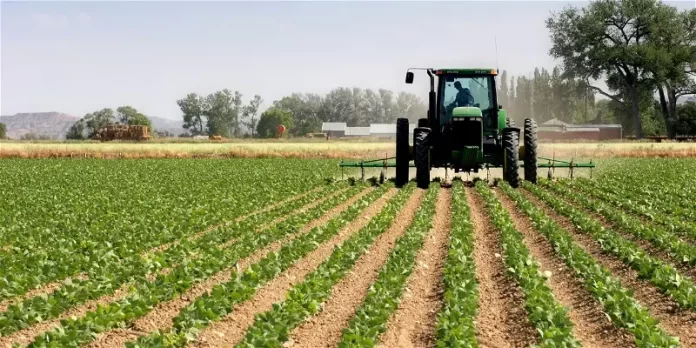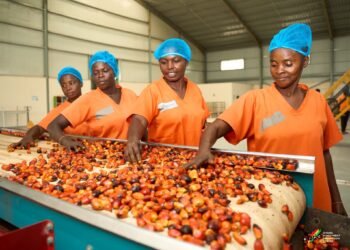In recent times, Europe has been gripped by agricultural protests, as farmers take to the streets, blockading cities, clashing with law enforcement, and expressing their frustration by dumping manure. At the heart of these demonstrations lies a contentious issue: The European Union’s stringent agricultural policies that effectively shut out imports from Africa. But why has this become such a burning issue for Africa, the continent’s largest agricultural trading partner?
The crux of the matter lies in Europe’s ambitious climate action plan, the Green Deal, launched in 2019 with the commendable goal of curbing emissions driving climate change. However, amidst this initiative, the EU also set its sights on phasing out the use of pesticides- a move that has had profound repercussions for African agriculture.
This decision was not made in isolation but against a backdrop of relentless campaigns by environmentalists, often backed by sensationalized media reports. One such campaign focused on the alleged detrimental effects of pesticides on bees, essential for pollinating crops. Despite evidence to the contrary, these campaigns fueled public opposition to pesticides, leading to their gradual phase-out across Europe.
Unfortunately, this crackdown on pesticides came at a time when climate change was exacerbating the spread and intensity of plant pests and diseases. Consequently, European agricultural production began to falter, prompting protests from domestic farmers who cited “unfair” competition from African imports still benefiting from pest protection measures.
To level the playing field, the EU extended its pesticide restrictions to African exporters, setting Maximum Residue Levels (MRLs) so low that they effectively amounted to a ban. This move sparked a dispute at the World Trade Organization, with multiple African nations joining forces with the US and India to challenge these measures as trade barriers.
Furthermore, the EU introduced new lists of quarantine pests, many of which could only be controlled using banned pesticides. This double-edged sword left African agricultural exporters trapped between stringent EU regulations and the ravages of unchecked pests.
Severe Impacts of EU Actions on Key African Industries
The impact has been particularly severe in key African industries. In West Africa, the cocoa sector, which accounts for a significant portion of agricultural exports to the EU, has been hit hard, leading to a surge in cocoa prices. Similarly, the fruit and nut industries in Southern Africa are on the brink of collapse, with stringent EU requirements threatening thousands of jobs.
In Kenya, efforts to maintain exports of flowers, fruits, and vegetables to the EU have backfired, as local bans on targeted pesticides have jeopardized food production and triggered warnings of a looming food crisis.
The consequences of Europe’s agricultural policies extend beyond economic hardship. With pests like the Fall Armyworm ravaging crops and diseases like leaf rust decimating wheat yields, African governments are forced to contend with the dilemma of balancing export revenue with domestic food security.
This dire situation is exacerbated by the divisive nature of pesticide policies within Europe itself. Despite calls to further reduce pesticide use, the European Parliament voted against a new bill last October, highlighting the polarization surrounding the issue.
In Africa, these policies are not just divisive; they are catastrophic, leading to increased poverty, hunger, and stalled development. Yet, as European politicians scramble to appease domestic farmers, the proposed solution seems to be doubling down on policies that exacerbate Africa’s plight.
In all, Europe’s agricultural policies, while well-intentioned, have inadvertently created a sinkhole for Africa’s agricultural sector. Urgent action is needed to rectify this imbalance and foster mutually beneficial trade relations that prioritize both economic prosperity and food security for all involved.
READ ALSO: IMF Chief Georgieva In Pole Position to Win Key Support for Second Term























